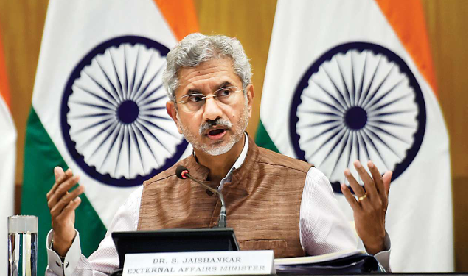
Internationalisation of Rs. Inevitable : RBI Report
- March 22, 2021
- 0
Internationalisation of the rupee is “inevitable” but will complicate the formulation of the monetary policy, according to the Reserve Bank of India’s (RBI’s) report on currency and finance.
Internationalisation means the currency can be freely transacted by both resident and non-residents, and be used as a reserve currency for global trades.
It can lower transaction costs of cross-border trade and investment operations by mitigating exchange rate risk, but “makes the simultaneous pursuit of exchange rate stability and a domestically oriented monetary policy more challenging, unless supported by large and deep domestic financial markets that could effectively absorb external shocks”.
“Internationalisation can potentially limit the ability of the central bank to control domestic money supply and influence interest rates as per domestic macroeconomic conditions,” the report said, adding, besides deep and sophisticated financial markets, the most important prerequisite for internationalisation of a currency is price stability.
The inflation rate, which is higher than the world average, undermines the use of the currency as an international medium of exchange and a store of value and can “restrict the role of such an economy in global value chains”.
On the contrary, stable prices build confidence of international investors in the domestic currency.
In this context, the primary focus of flexible inflation targeting framework on price stability augurs well for further liberalisation of the capital account and internationalisation of the rupee, it said.
रुपये का अंतरराश्ट्रीयकरण अपरिहार्य: रिजर्व बैंक
भारतीय रिजर्व बैंक (आरबीआई) ने अपनी एक रिपोर्ट में कहा है कि रुपये का अंतरराष्ट्रीयकरण अपरिहार्य है लेकिन इससे मौद्रिक नीति का गठन जटिल हो जाएगा। यह रिपोर्ट वित्त पर मुद्रा पर आधारित है।
रुपये के अंतरराष्ट्रीयकरण का मतलब है कि मुद्रा का उपयोग निवासी और अनिवासी दोनों स्वतंत्र रुप से कर सकते हैं और वैश्विक व्यापारों के लिए उसका उपयोग आरक्षित मुद्रा के तौर पर किया जा सके।
रिपोर्ट में कहा गया है कि स्थानीय मुद्रा के अंतरराष्ट्रीयकरण के परिणाम स्वरूप विनिमय दर जोखिम समाप्त होने से सीमा पार व्यापार में लेनदेन और निवेश परिचालनों की लागत कम हो सकती है, लेकिन यह विनिमय दर स्थायित्व को क्षणिक और घरेलू दृष्टिकोण वाली मौद्रिक नीति को और अधिक चुनौतीपूर्ण बनाता है। इससे बचाव के लिए बाहरी झटकों को प्रभावी तरीके से सहने में सक्षम बड़े और गहन घरेलू वित्तीय बाजारों की आवश्यकता है।
रिपोर्ट में कहा गया है, ‘अंतरराष्ट्रीयकरण संभवतः घरेलू रुपया आपूर्ति को नियंत्रित करने की केंद्रीय बैंक की क्षमता को सीमित कर सकता है और घरेलू वृहद आर्थिक परिस्थितियों के मुताबिक ब्याज दरों को प्रभावित कर सकता है।’ इसमें कहा गया है कि गहन और जटिल वित्तीय बाजारों के अलावा किसी मुद्रा के अंतराष्ट्रीकरण के लिए सर्वाधिक महत्त्वपूर्ण पूर्व शर्त कीमत की स्थिरता है।
विश्व औसत से अधिक महंगाई विनिमय के अंतरराष्ट्रीय माध्यम के रूप में उपयोग किए जाने और मूल्य का भंडार बनने की मुद्रा की क्षमता को कम करता है और वैश्विक मूल्य श्रृंखलाओं में ऐसी अर्थव्यवस्था की भूमिका को प्रतिबंधित करता है।
इसके उलट स्थिर कीमत से घरेलू मुद्रा में अंतरराष्ट्रीय निवेशकों का भरोसा बनता है।
इसमें कहा गया है कि इस परिपेक्ष्य में कीमत स्थिरता पर ढांचे को ध्यान में रखकर लचीले महंगाई का प्राथमिक जोर पूंजीगत खाते को और अधिक उदार बनाने और रुपये के अंरराष्ट्रीयकरण के लिए काफी सहायक होता है।































































